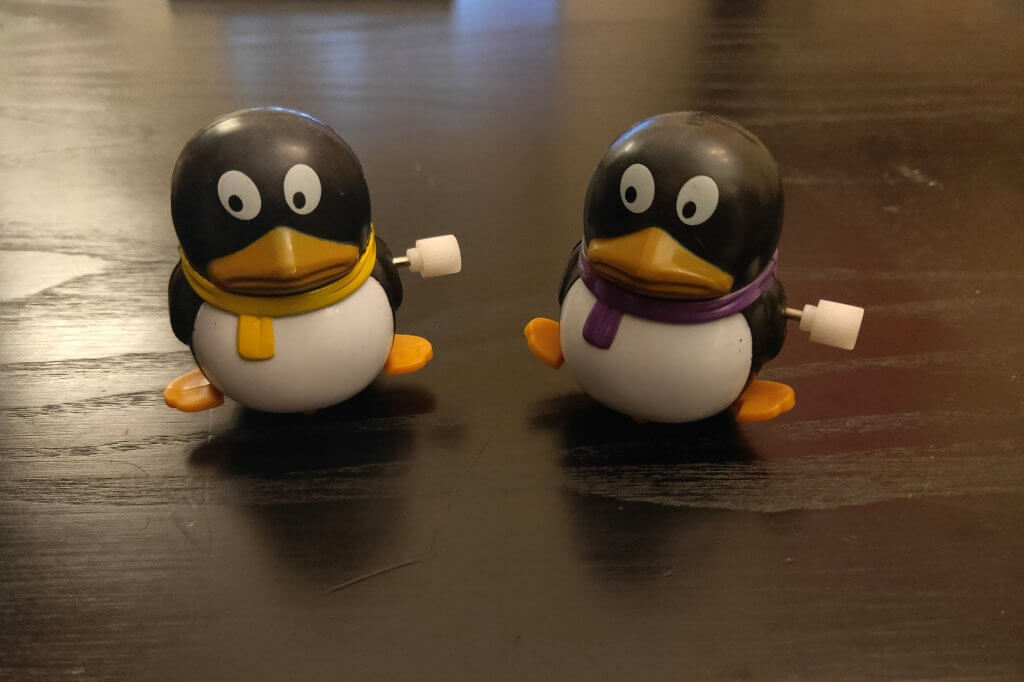

Hey, lockdown readers! I hope you are all well and staying safe. So originally I was intending to write this post a couple of weeks back, but, somewhat ironically I’ll admit, between my ongoing day job, writing work and keeping in closer contact with my loved ones, there wasn’t much time left for play, let alone writing about it! But over the last couple of weeks I’ve made a concerted effort to do something with an element of play, if not every day, then certainly plenty of times over the course of the week. Sure enough, on the days that I introduced something playful and fun, I found my mood has lifted and I have felt more alive, more active and somehow more ‘me’.
If you want to get in on that feeling, or if you’re simply bored of lockdown, check out my top five suggestions to get you started:
Right back to your childhood. Think what activities, hobbies or interests made you happy then. Pick one or two to take up again today. And sure, not everything will be a suitable option. Playing Stuck In The Mud with a bunch of pals or climbing trees may not be all that doable these days – but then again, climbing trees should definitely count as exercise and it’s certainly an inventive way to make sure you stay two metres apart from everyone, so who knows? Where you may once have been ‘cooking’ up make-believe potions full of leaves and probably poisonous berries with a generous helping of mud, maybe now it’s making up your own recipe for the perfect brownie. Word to the wise on that one, best make it flour-less and egg-less, if the state of my local shops’ shelves are anything to go by…cue horrendous jokes about being sure you bakers will ‘rise to the challenge’ (sorry, couldn’t resist).
While you may have to adapt your childhood hobbies to the current situation or your adulthood capabilities, it is that very challenge that will force you to get into the playful spirit of the thing. The bigger the challenge, the more inventive you will have to be to make it work for you, and the more you’ll get out of your playtime! My example of this is trying to race mini wind-up penguins with my mum and brother – across two tables 400 miles apart. Now I’m not saying this is some childhood family tradition – that well-known family activity of penguin racing must have skipped our rural household – but as a kid I was never one to ignore an opportunity for racing my brother. So that is exactly what I did with my Easter Sunday. It was utterly ridiculous, very ambitious given that we just had each other’s web cam feeds to rely on for the results, and, above all, SO much FUN! So yes, get in touch with that inner child of yours and ask them what they want to do for a change.

Talking of change, you know that language you always said you’d learn some day? Or that instrument that’s sitting gathering dust in the corner? Now is the time to pick up the plectrum, open the phrase book and figure out a fun way to learn something new. Many of us go through so-called phases of learning such things and then quit when it gets ‘too hard’ for us. But all too often, ‘too hard’ really means our approach to learning this new skill was actually too rigid and inflexible,

turning what used to be an exciting prospect we were itching to get our hands on into a boring slog of a chore. I experienced this myself when I took piano lessons at school. Initially keen to learn to play, my enthusiasm was slowly quashed by the unbending, strict regime of the world’s worst piano teacher, who never once asked me what I would like to learn and instead insisted on me playing mind-numbing scales and plodding classical numbers (to this day, I hate Bach) I found dull at best.
As a result, all of the fun and playfulness was sucked out of piano for me, and I was put off the idea for good.
But if you design your learning around what excites you about it, you will never suffer the same fate. For instance, if you want to learn Italian so you can go on holiday to an obscure part of the country (post-Covid, obviously) and speak the language, think about what kind of situations you will be in on holiday and shape your learning around those.
It may be a good idea to role-play the different scenarios, either with a lockdown buddy, remotely via the video conferencing platform of your choice, or you could check out the various language apps and YouTube videos online. If it’s an instrument, write down your top 5 favourite songs that you would love to be able to play, and find someone who is able to teach you how to play those specific songs – far more fun than learning chords or scales for what can feel like no good reason! Both cases involve identifying why you think it would be fun to learn this new skill and going about it in an active, imaginative way tailored to what you want. That is the space in which learning becomes playing.

Curiosity may have killed the cat, but taking things for granted or ignoring them killed the spirit of play and made us all a lot more miserable. Normally, when we are going about our daily lives, running the rat race, most of us tend to rush straight from A to B, so wrapped up in what’s going on in our heads we hardly notice our surroundings along the way, let alone ask questions about them. But if we were to do so, we might learn more about the world around us and appreciate the small, beautiful things of life, such as the delicate glory of tree blossom, the cute way squirrels bound around, the artistry and imagination of graffiti, etc.
If you practise mindfulness at all, all of that will be very familiar to you. But I’m not just suggesting noticing and appreciating your surroundings, as mindfulness does.
If you are able to get out and about at all for exercise/essential shopping, or even if you have a decent view out of a window, lockdown is an excellent opportunity to exercise the muscle of curiosity. Speculate. Wonder. In the same way that kids go through that age when they are ceaselessly asking questions.
But instead of asking a parent or guardian, ask yourself the questions and use your imagination to come up with answers. On the way back from a hefty food shop the other day, I paused to nurse my aching hands back to life in the park and noticed a plastic wallet cellotaped onto the bench opposite. It had a piece of paper inside with a kid’s drawing of a rainbow on it and the words, hank you to whoever cleared up the litter’. It made me smile, but I didn’t just stop at thinking, ‘Aw, how sweet!’
As an exercise in curiosity I wondered what kind of kid wrote it and whether it was their parents’ idea to put it up there or if they did it on their own. I wondered whether it was done as part of their home schooling or outside of that time. Within a minute I’d come up with a little story about it, and kept myself entertained while I was waiting for the blood flow to return to normal in my bag-lifting hands. Paying attention to small things and making up stories like this is another thing we tend to do when we’re young, but neglect as we get older, instead dismissing little observations like this into the category of ‘unimportant’, ‘not worth my time’.
But when you actually take the time to do it, it’s a very rewarding activity. And as I say, it needn’t be from observations made while out and about. It could be something you observe from indoors, from your window – the behaviour of an animal, the clouds or people passing by. Many may think this isn’t useful, but it can be very satisfying and actually, if you think of your imagination as a muscle, this is the equivalent of stretching before/after you do a full work-out.
On the other hand, to quote many action films and Star Trek, ‘Never underestimate the element of surprise.’ If I had to pick just one theme that came out from my research, it would be the vital link between playfulness and novelty. Psychologist Nick Wignall isn’t shy about the connection, stating:

So it follows that predictable routine is the enemy of play. If you want to rediscover how to play properly, you should be spontaneous every once in a while, surprise yourself. One simply way in which you could do this, if you are allowed to leave your house at the minute, is to walk in a direction you have never gone before, and instead of checking Google Maps or planning your route beforehand, just wander, deciding where to turn on a whim of the moment, or even on the toss of a coin.
I did this the other day and discovered some truly lovely residential areas with lots of green spaces I never knew existed. I also experienced a sense of challenge and achievement in finding my way back after wandering at whim for so far I had basically got myself lost. At one point I nearly gave up and resorted to Google Maps, but I resisted the urge, and am very glad I did, as not knowing where I was made me engage my brain a lot more and invited a fun spirit of adventure.
If walking is not an option for you, you could try surprising yourself in other ways. If you normally live by a rigid routine, try breaking said routine to, e.g. have a massive spontaneous rave round your living room instead of cooking the dinner, change up your mealtimes, and see how it makes you feel. If you haven’t got a rigid routine, but are naturally a lark, try sleeping in and spending all day cosy in your PJs. If you are naturally an owl, force yourself to get up early just this once and do something fun with your morning.
It almost doesn’t matter what; if your behaviour is truly novel and has some element of challenge to it, without pressure, your sense of play will be ignited and you’ll feel the fun.

Finally, this isn’t so much a specific suggestion, but more of a general guide to the principle of the thing. However you choose to spend your playtime, be brave with it, take the ‘go big or go home’ attitude. The key to being able to have this attitude in the first place, and probably the second most important thing to bear in mind about playing, is you are officially NOT ALLOWED to judge yourself. Along with the predictability of routine, this is the main reason why we lose touch with our ability to play as we grow up: judgement.
When we’re kids, we simply don’t judge – ourselves or others. As long as it doesn’t hurt anyone, all fun is fair game. But as we grow up, society, peer, family and individual expectations get piled on and our behaviour becomes self-conscious and constricted as a result. To learn more about how this happens, check out Jacqueline Emerson’s TEDx Talk, details below. But to truly enter into the spirit of play, you have to be brave and shrug all of that aside as so much dead weight.
Now, I’m not expecting anyone to be able to do this for all situations: judgement is so ingrained into the way we live it probably isn’t possible without absolutely years of hard work and therapy. But for the purposes of getting back in touch with your ability to go about life playfully, try to create a space for yourself, perhaps literally a designated time of day and a particular place, where you say to yourself, “I am playing now. I am not going to judge anything I do here.” You may find it is easier to do this if you treat it as necessary self-care, rather than something superfluous, which is how we often think of activities to do with play.
If you remember that idea of stretching your muscle of curiosity, and therefore your imagination, that too may help; whether or not you need to be creative in your work or your interactions with others, we all need to be creative to get the best out of the current situation, so that we are capable of imagining life after lockdown and any and all possible silver linings.
Ultimately, exactly how you play is up to you, and it will be different for everyone because playing is one of the most unique and intimate things a human being can do. Your choices in play reveal your individual personality, which I think is part of why it is such a fulfilling thing to do. I hope these suggestions will prove helpful nudges into making play an integral part of your life – or more than it is now, at least – and remember, this doesn’t just have to last for lockdown.
One of the best things about lockdown is that, assuming you are healthy, you may well have more time (and I know it can be annoying to hear that for those of us still in full-time employment or parents suddenly having to become teachers, so sorry to you guys!) on your hands at the minute, and therefore enough time to experiment with a wide range of playful additions to your life, which should allow you a rare opportunity to find the most enjoyable and effective form of play for you. If you are one of those people who have found you actually have less time in lockdown, as a very wise man repeatedly says in his new podcast, ‘There is always time to slow down’.
Whatever you choose to do to reconnect with your sense of playfulness in this difficult time, remember that true play is not only enjoyable, but has an element of novelty, is very often challenging, can be a solo or a group activity, and engages your inner child. So, without any further ado, go forth and play!
Books:
Articles:
Videos:
Podcasts: